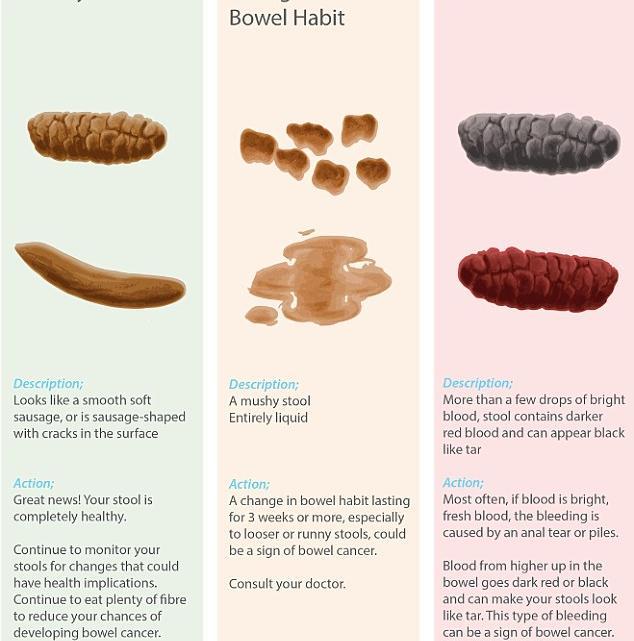
It's part of our daily routine, but it's not something we generally talk about.
Now bowel cancer experts in the UK are making numbers twos a number one priority.

(Daily Mail / Ramsay Health Care UK)
This new poo chart has been designed to help identify signs of bowel cancer, showing what's normal and when you should see your doctor.
Dark blood in the stool could be a sign of bowel cancer, but the chart also warns of a persistent change in bowel habits.
New Zealand has the highest rate of bowel cancer deaths in the developed world. Each year around 3000 Kiwis are diagnosed with the disease, and 1200 will die.
"If we're to address our death rates we have to get more comfortable talking about our poo," says Medical Director for the Cancer Society, Dr Chris Jackson.
"We all know a lump in the breast can indicate breast cancer but fewer people are aware a change in bowel habit could indicate bowel cancer."
The earlier bowel cancer is caught, the easier it is to treat -- 75 percent of bowel cancer is curable if caught early.
But it seems many people are reluctant to talk about their bathroom habits. The UK's Daily Mail reports a new survey shows only around 50 percent of people would discuss the subject with family -- and even fewer with friends.
Ideally Dr Jackson would like to see a bowel cancer screening programme introduced. But without that he says Kiwis need to know their poo.
"All New Zealanders should get to know their poo. A persistent change in bowel habit lasting six weeks or more can be a sign of bowel cancer or other bowel problems, and you should talk with your doctor."
The chart was created by Ramsay Health Care UK and bowel cancer consultant Ashish Gupta. Dr Jackson says he usually uses the Bristol Stool Chart, but says anything to raise awareness is a good thing.
Be aware of the symptoms and see your GP if concerned
Source: Bowel Cancer NZ
Ways to reduce your risk of bowel cancer
Source: Ministry of Health
Newshub.
